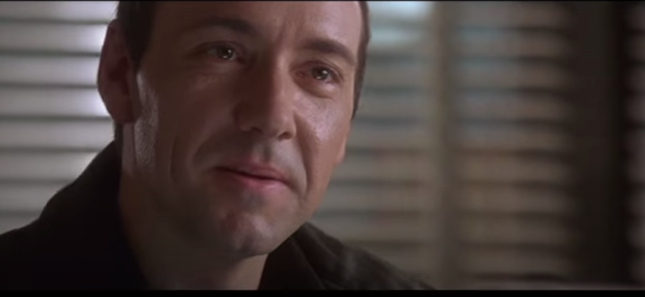Uncover the Mysterious Secrets: Writing an Unforgettable Mystery Ending

The Importance of a Strong Ending
A strong ending is essential in any genre, but particularly so in crime or detective novels. Your main character has been playing a dangerous game from the start, and they may have even faced death themselves along the way.
They’ve chased leads, interviewed suspects, and discovered interesting pieces of evidence as they try to solve the case. Now comes the big reveal: who is the murderer? Will justice be served, or will they get away with it forever?
As a mystery writer, you need to keep your audience engaged from start to finish. If your story doesn’t lead them down the right path or if there are too many loose ends, your reader will feel cheated. On the other hand, if you give everything away too quickly, they’ll lose interest immediately. You need to balance keeping them interested and giving them enough information to satisfy their curiosity.
Crafting Your Mystery Ending
One tip for crafting an unforgettable mystery ending is to make sure all loose ends are tied up. This means that every suspect, piece of evidence, and plot point must be resolved in a way that is consistent with the story.
You don’t want to leave your reader hanging or wondering what happened to certain characters or plotlines. This is especially important when it comes to the murderer. You need to make sure their identity is revealed in a satisfying way.
Adding a surprise to the final reveal is another important part of making a mystery ending that people will remember. Your reader may have suspected one character as the killer throughout the book, but if you can throw them off with a twist at the end, they’ll remember your book long after they’ve finished reading it. Think about adding unexpected revelations or new information that changes the course of the investigation in a meaningful way. You might also consider using foreshadowing earlier in the book to plant hints that will lead up to the big reveal.
In addition to tying up loose ends and incorporating surprises, it’s also essential to give your protagonist a chance to shine in the final scene. They’ve been working hard to solve this case and bring justice to the victim, so let them have a moment where they show off their skills and determination. Whatever it is, make sure it feels earned and adds to the overall satisfaction of the ending.
Writing an Unforgettable Mystery Ending Takes Careful Planning and Attention to Detail
It’s important to start with a clear idea of the key suspects and potential motives. As the story progresses, new clues may emerge that challenge or support these suspicions. It’s okay to leave readers guessing along the way, but be sure to provide enough information for them to piece together their own theories.
In addition to the mystery, it’s also crucial to develop well-rounded characters with something at stake in solving the crime. This could be because they knew the victim personally, saw an opportunity for redemption or financial gain, or just wanted to show that they were good investigators. By allowing readers to connect with the characters on an emotional level, they become more invested in the outcome of the story.
Finally, the ultimate reveal should be satisfying without feeling predictable or contrived. Remember that just because the murderer has been apprehended does not mean that all loose ends have been neatly tied up. Leaving room for interpretation or character growth can make the ending even more impactful and thought-provoking. Bring everything full circle in a final, dangerous showdown that pays off earlier plot points.
Keep Readers Engaged with Interesting Clues and Twists
As an author, it’s important to know that the final pages of your novel will leave a lasting impression on your readers. It’s not enough to simply have a murderer revealed and justice served; you must provide a satisfying and surprising ending.
To do this, you must closely examine your story and ask yourself what key elements need to be in place for your reader to feel like they’ve truly solved the mystery alongside your protagonist.
One great example of how to focus on the end goal is by creating a detailed outline before starting your novel. This can help you determine what clues you’ll need to drop along the way and allow you to show off your protagonist’s skills in a way that feels true to life.
Additionally, foreshadowing throughout the book is a great way to plant hints without giving too much away too soon. By doing so, you keep readers engaged while also building tension leading up to the big reveal.
Of course, incorporating twists into your story isn’t just about keeping readers interested; it’s also about making sure that your characters feel real and relatable. You might consider adding new information or character development in the last few chapters that changes everything the reader thought they knew.
At the heart of every great mystery lies an unforgettable villain, someone whose motivations are deeply rooted in the story’s world. To create a truly unforgettable ending, you need to make sure your villain is as interesting and dangerous as possible. The key is to keep readers guessing until the very end, never giving away too much information too soon.
For example, you could introduce a number of suspects who all seem equally likely to be the murderer. But then, in the final pages, you reveal that the real killer was someone entirely unexpected.
Ultimately, if you want to write an unforgettable mystery ending, you must stay true to your characters’ motivations and personalities while keeping the pace quick and exciting. With careful planning and attention to detail, you may be able to craft a final chapter that leaves readers breathless and begging for more.
Keeping Readers on Their Toes
A strong ending can make or break a story, so it’s important to get it right. Readers will remember it long after they’ve finished the book and put it back on their shelf.
But how do you keep readers engaged throughout the entire novel? How do you ensure they stay interested in the clues and twists you’re laying out for them?
One key to keeping readers on their toes is never to let them get too comfortable. You want to constantly be throwing new information at them, making them question what they thought they knew about the case.
Another way to keep readers engaged is to show, not tell. Instead of simply telling your readers who the murderer is, give them clues and let them come to their own conclusions. As you get close to the end of your mystery novel, think about what your readers will get out of it. It’s important to make sure that the solution to the mystery is satisfying and makes sense within the context of the story. Don’t throw a twist in for the sake of shock value; however, in your rush to wrap up the plot, don’t neglect character growth and development.
Your protagonist should have gone through some sort of journey or transformation over the course of the novel, whether it’s learning to trust others, facing a fear, or overcoming an obstacle. This growth can tie into the resolution of the mystery, showing how they have changed and grown as a result of their experiences.
In the end, emotional resonance will make your mystery ending unforgettable. Make sure there is something at stake beyond just solving the crime; perhaps a loved one’s life is on the line, or the detective must confront their demons to bring justice. When readers feel invested in the outcome, they’ll be more likely to remember it long after they’ve closed the book.
The Final Showdown
The final showdown is the moment readers have been waiting for. It’s the climax of your story, where everything comes together and all loose ends are tied up. This is where you bring your best writing skills to the table and leave a lasting impression on your audience.
In a murder mystery novel, the “final showdown” is the moment when the murderer is finally revealed. The protagonist may have gone through dangerous and deadly situations to reach this point, but they never gave up. They kept their head in the game and followed every lead until they found the key piece of evidence that would bring the murderer to justice.
But it’s not just about solving the crime. The final showdown should also reveal something interesting about the characters or their world. Maybe they learn valuable lessons that make them better equipped for future challenges and help with their personal and professional growth.
The protagonist faces many obstacles throughout the story, but in the final showdown, they come out on top. The love interest they thought they lost forever returns to their side, proving that anything is possible if you never give up. There were many suspects, and it seemed everyone had something to gain from the victim’s death. But in the end, justice prevails, and the murderer is finally caught.
The big reveal may not have been what anyone expected, but it makes perfect sense. The clues were there all along, hidden in plain sight. The protagonist kept trying until they uncovered the mysterious secrets that led them to the killer. It was dangerous and dark, but they never lost hope or gave up.
Writing an unforgettable mystery ending requires skill, attention to detail, and a willingness to take risks. The final showdown should leave readers satisfied but also wanting more. It should tie up loose ends while leaving room for character development and growth. By following these guidelines and utilizing interesting twists and turns, writers can create a story that will keep readers on the edge of their seats until the very last page.
This article is just one aspect of creating a great mystery. Build your foundation by enrolling in Write A Killer Mystery. You’ll cover the basics as you go from story idea to writing The End.
Photo by RODNAE Productions


